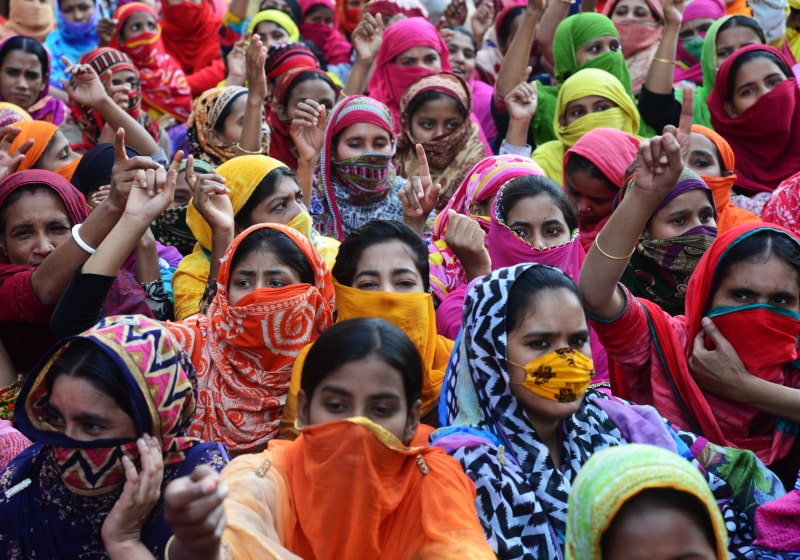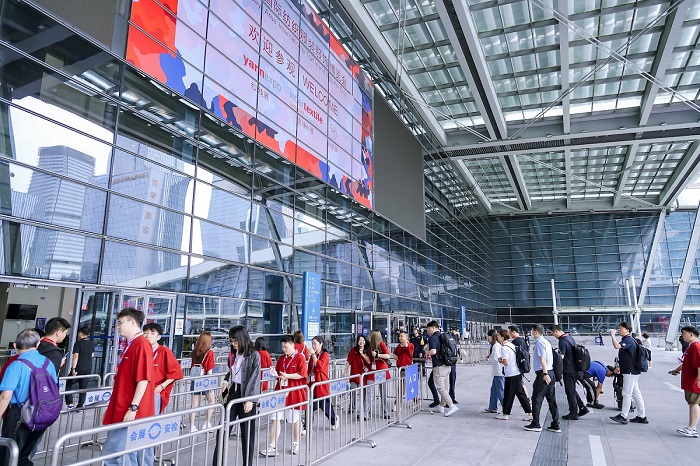
Good Clothes Fair Pay is a campaign, by European Citizens’ Initiative for living wages in the fashion supply chain, demanding legislation that helps achieve fair pay for textile and garment workers around the world. The campaigners believe the millions of workers in global textile, garment and footwear manufacturing industries are not paid enough in most cases to eke out a decent living to fulfill their basic needs. What makes it worse, according to campaigners, is that a vast majority of such workers are women. They remain trapped in poverty while big fashion companies continue to profit from their hard work.
It is a deeply unfair and exploitative system, and the campaigners demand better. The pandemic has deepened wage insecurity for the people who make our clothes, leaving workers without any social safety net, struggling to pay for food, healthcare and shelter. As the campaign has hit the ground running and is rapidly approaching a million signatures from EU citizens that will ensure the EU Parliament pays heed, a large number of global garment groups have swung into action, liaising with the European trade unions for introducing a time-bound action to close the gap between actual and living wages.
Demand for legislation to implement on entire supply chain
An excerpt from the campaigners’ open letter the European Commission clearly states “While garment brands and retailers have seen their revenues and profits grow over the past decade - most even remained profitable during the Covid-19 pandemic - workers in garment production countries have not experienced a similar growth in their purchasing power.”
The initiative called on European Commission to implement specific legislation that would require garment brands and retailers importing into the EU market to put in place, implement, monitor, and publicly disclose a time-bound and target-bound plan to close the gap between actual and living wages. It is a tall order at the moment but with the 40 global groups onboard, the European Commission is bound to pay attention and move forward with data and specifics as the manufacturing hubs are not only spread across South and South East Asia, but also North America (Mexico), Central and South Americas where legalities are most often ignored and manufacturing hubs are controlled by often violent mafia.
What the European Citizens’ Initiative wants
The scope covers brands and retailers who want to trade in the EU, independently of whether they are based in the EU or elsewhere. It puts particular emphasis on requiring brands to identify risk groups that are particularly hard hit by low wages, such as women and migrant workers. The proposal includes measures such as the companies’ pricing, costing and overall purchasing practices, ensuring that workers do not have to rely on excessive overtime to meet their basic needs. This legislation would be the first living wage legislation at the EU level for garment workers worldwide.
Better laws and regulations in Europe can make sure that companies all over the world do their part in ensuring that the workers in their supply chains are paid fairly. This will be the single biggest EU campaign on living wages in the garment sector to date. If successful, the legislation will be a groundbreaking step in building a fairer fashion system where brands are held accountable for the people who make their clothes. We believe that proactive policy like this is crucial for safeguarding millions of workers in the fashion supply chain, and that the EU can lead the way for positive change.












